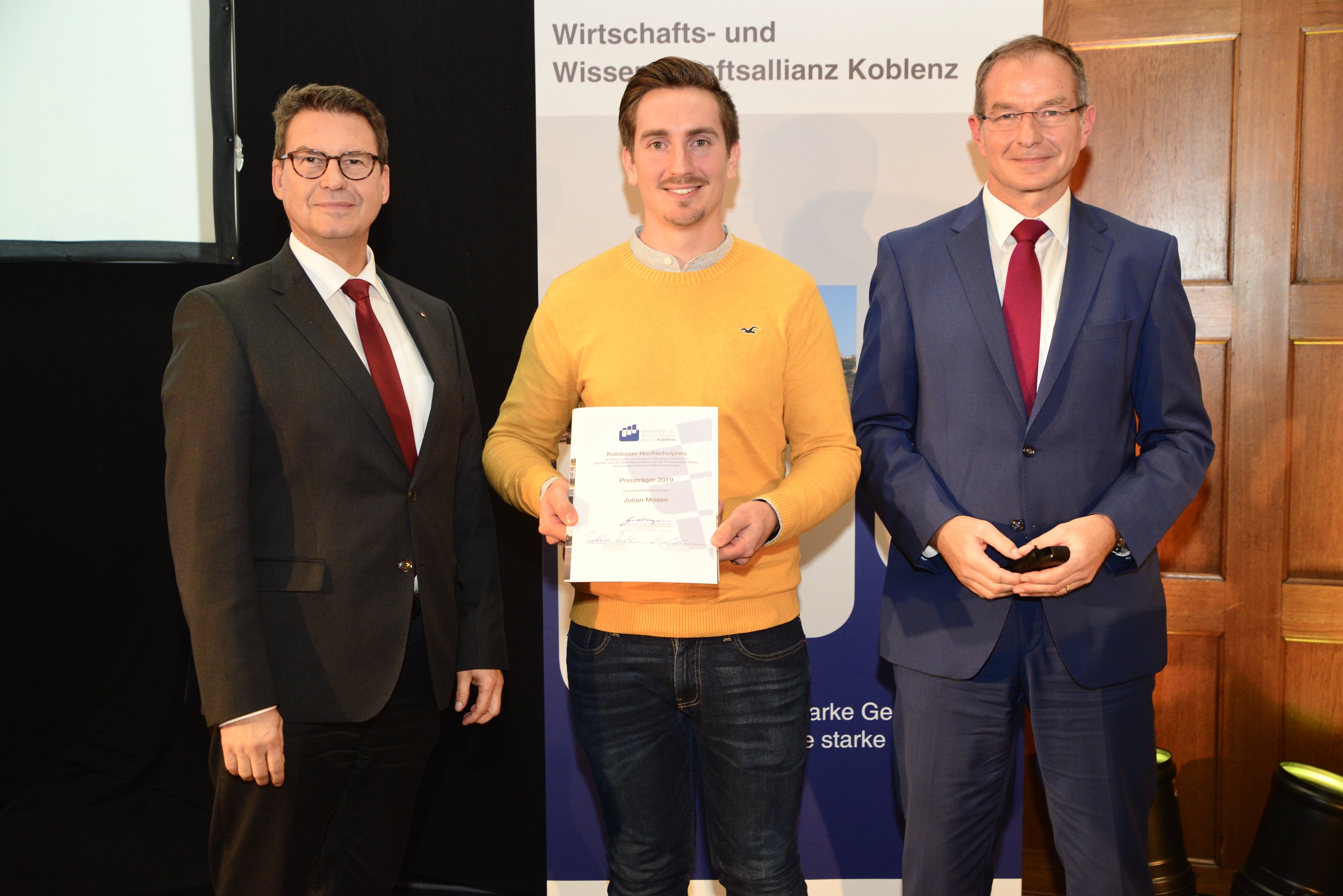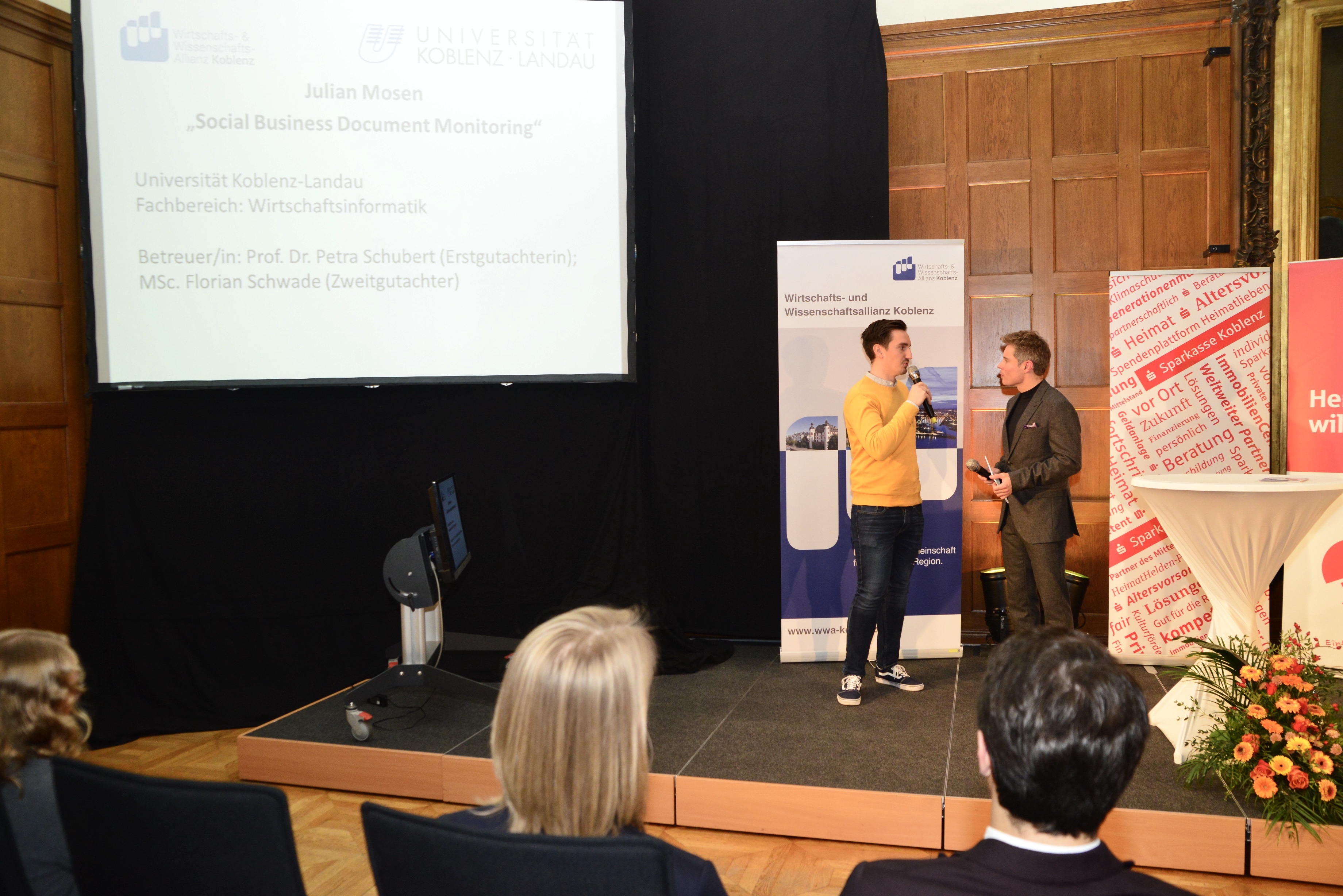Julian Mosen is honoured with the Koblenz Economics and Scientific Association Student Research Thesis Award 2019
[+++Click here for german version+++]
At the 27th Koblenz Economics and Scientific Association Student Research Thesis Award ceremony, Julian Mosen, member of the Business Application Systems Research Group, member of the CEIR research team and the University Competence Center for Collaboration Technologies, was honoured for his outstanding Master’s thesis work.
On November 6th, 2019, the Wirtschafts- und Wissenschaftsallianz Koblenz e.V. presented the Koblenz Economics and Scientific Association Student Research Thesis Award, endowed with a total of 25,000 €, to eleven young academics from universities in the Koblenz region. At the award ceremony in the historic Koblenz Town Hall, the nominees gave an interview on the topic of their research with a focus on its social significance and practical relevance. Three students of the University of Koblenz-Landau received the award.

Phillipp P. Jakobs from the Department of Education Sciences (FB1) for his Bachelor thesis on “Stadtsoziologie als Wirklichkeitswissenschaft” and two award winners from the Department of Computer Science (FB4): Alex Baier (staff member at Institut WeST) for his Master’s thesis about Deep Learning for autonomous shipping and Julian Mosen (staff member of the Business Application Systems Research Group and member of the CEIR research team) for his Master’s thesis on the topic “Social Business Document Monitoring”.
The objective of Julian‘s master thesis is to take a first step towards the analysis of “Social Business Documents”. In addition to classic, structured business documents (such as invoices or purchase orders), other kinds of documents are created when employees work together and communicate with each other. The “social” aspect of these business documents describes the collaborative development process in which several employees are involved. At the same time, a “social exchange of information” takes place with and within these documents. A wiki page is an example. It offers “social interaction possibilities” through editing, commenting or recommending.
Other than traditional business documents, social documents change over time by being extended with new components (e.g. comments, attachments or cross-references to other content). In addition to wiki pages, there are other “types” of social documents such as blog posts or forum entries. While the components of social documents are recurring, the structure and composition within a social document can be different.
In the context of the thesis, Julian shows that the structure of social documents can be used to determine how and to which level employees in a company work together and communicate via digital channels. He developed a concept for monitoring social documents and demonstrated its applicability with a prototype of a dashboard that analyzes social documents in real-time and visualizes their structure. The prototype accesses the content database of the collaboration platform “UniConnect” (HCL Connections) of the University Competence Center for Collaboration Technologies. Due to its generic structure, the dashboard can also be used in the context of other collaboration platforms.

The team of CEIR and the University Competence Center for Collaboration Technologies is proud to announce the award to a team member and congratulates Julian Mosen on this success.
Official press release: https://idw-online.de/de/news?print=1&id=726543
